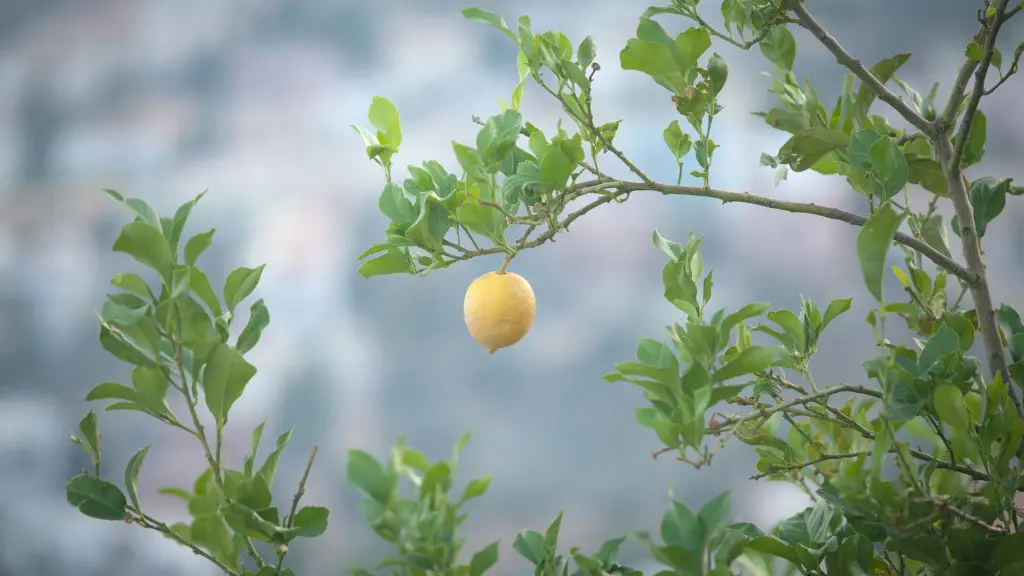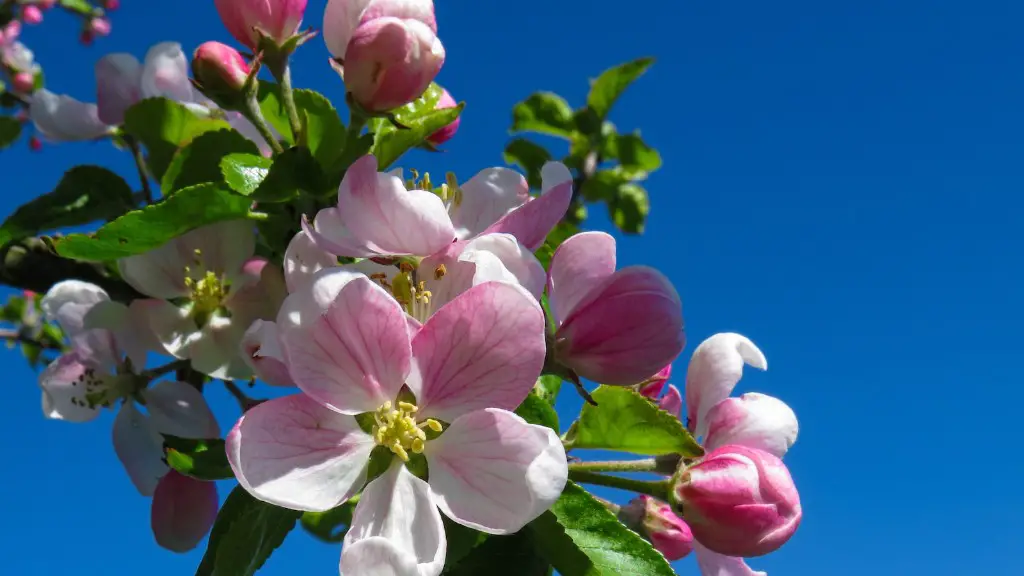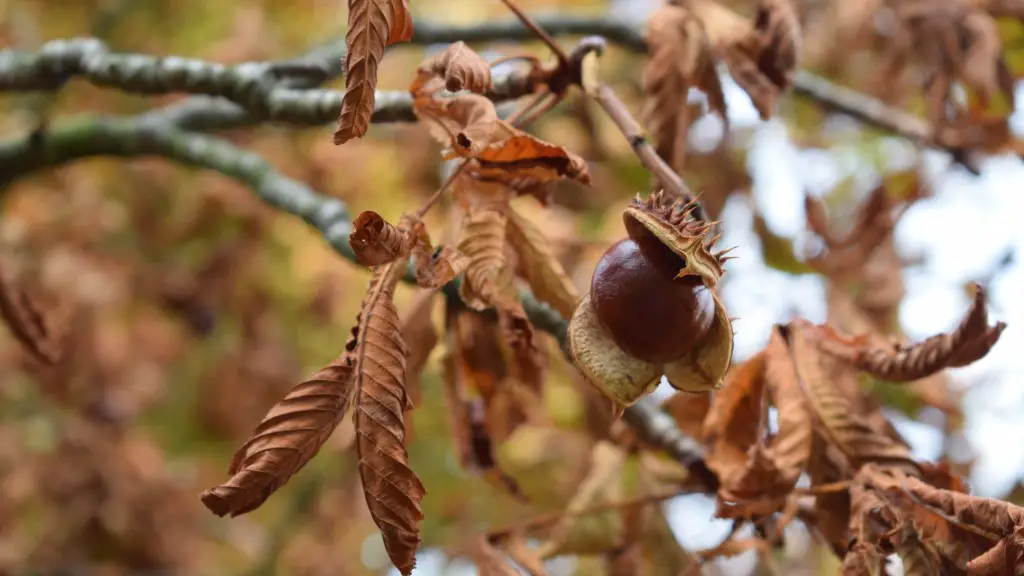Meyer lemons are one of the most sought-after citrus fruits, and can easily be found growing on trees in many yards and gardens around the world. The key to enjoying them at their very best, however, lies in learning how to ripen them off the tree. Before embarking on this venture, it’s important to keep in mind that meyer lemons do not need to be fully ripened on the tree like other citrus fruits, so harvesting them before they are fully ripe won’t affect their overall flavor. With these tips in mind, here’s how to ripen meyer lemons off the tree.
First, you’ll want to select the lemons that are bright yellow in color and have smooth, shiny skins. These are the ones that are ripe and ready to be picked. Next, it’s important to choose only fresh, unbruised fruit with no soft spots or damage on them. If a lemon looks like it has been scratched or damaged, it may rot before it can fully ripen. If a lemon feels firm to the touch, it’s probably still not ripe yet and should be left on the tree.
Once you’ve harvested your meyer lemons, the ripening process begins at home. Place them in a sunny spot or area with good air circulation, such as a countertop or some other surface that has plenty of light and ventilation. Meyer lemons typically take up to two weeks to fully ripen at room temperature, so be sure to keep checking them as the days progress. You can also speed up the process by moving them to a warmer spot for a few days.
You’ll know a meyer lemon is ripe when it’s deeply yellow in color, feels slightly soft when you squeeze it, and has a fragrant, sweet aroma. It should also feel heavy for its size. Once your meyer lemons are ripe, you can store them in the refrigerator, where they will keep for up to two months.
If you don’t think you’ll use all your ripe meyer lemons right away, you can preserve them for future use. One of the easiest ways to do this is to juice the lemons, pour the juice into an ice cube tray, and freeze it. Once the cubes are completely frozen, remove them from the tray and store them in a sealed container or freezer bag. They’ll keep in the freezer for up to six months.
Meyer lemons are a great addition to many dishes, drinks and desserts so learning how to ripen them off the tree is an essential part of being able to enjoy them at their very best. With a bit of care and patience, you can have ripe meyer lemons all year round.
Role of Humidity in Ripening Meyer Lemons
When ripening meyer lemons off the tree, it’s important to take into account the role of humidity in the process. Meyer lemons are best ripened in warm, humid environments, so if the air in your home is too dry, your lemons may not ripen properly. To make sure your lemons ripen evenly, you can spritz them with water a few times each week while they are ripening. This will help keep them moisturized and ensure they ripen as intended.
It’s also a good idea to keep an eye on the temperature in the room where your meyer lemons are ripening. Aim to keep it between 65-70 degrees Fahrenheit (18-21 degrees Celsius). If it gets too hot, your lemons can develop a sunburn and won’t ripen properly. Finally, try to avoid direct sunlight when ripening your meyer lemons, as the UV rays can be harmful to the fruit.
Indicators of Ripened Lemons
Knowing when your meyer lemons are ready to be harvested can be tricky, but there are a few indicators you can look out for. If a lemon looks like it’s getting paler or lighter in color, that’s a sign that it’s not ready yet and needs more time on the tree. You may also want to look for any brown or yellow spots on the lemon; this is a sign of an over-ripe meyer lemon so it’s important to pick it before it starts to rot.
One of the most reliable indicators of a ripe meyer lemon is its aroma. A ripe lemon should have a pleasant, sweet scent that is quite different from the aroma of an unripened meyer lemon. If you can smell the lemon even before you pick it off the tree, that’s a good sign that it’s time to harvest.
Harvesting Meyer Lemons from the Tree
Finally, once you’ve determined that your meyer lemons are ripe and ready to be picked, it’s important to harvest them carefully. You’ll want to use clean scissors or clippers to cut the fruit from the tree, making sure not to damage the remaining branches. When picking the lemons, be sure to hold them by the stem so you don’t damage them and avoid tugging them, as this could cause them to break.
If you’re picking multiple meyer lemons at once, be sure to place them in a shallow basket to keep them safe during transport. You can also use a lidded container if you don’t have a basket available. Ideally, you should bring the lemons indoors as soon as possible, as any extended time in the sun could cause them to over-ripen.
How to Store Meyer Lemons
Once you have harvested your meyer lemons, it’s important to store them properly to make sure they stay as fresh and flavorful as possible. If you plan to use them right away, store them at room temperature in a dry, cool area with good air circulation. To extend their shelf life, put them in the refrigerator; they will keep for up to a month. If you want to freeze your meyer lemons, make sure to juice them first, as freezing unripened lemons can affect the taste and flavor.
You can also make your meyer lemons last longer by preserving them in a sugar syrup. To do this, place one cup of sugar into two cups of water and gently heat in a saucepan. Once the sugar has dissolved, take the syrup off the heat and let it cool at room temperature. Once cooled, add the juice of three meyer lemons and the zest of one lemon, then pour the mixture into an airtight container and store it in the refrigerator for up to 6 months.
Meyer lemons are a delicious addition to many dishes, drinks and desserts. By understanding how to ripen them off the tree and store them properly, you can enjoy the sweet, fragrant flavor of this citrus fruit all year round.



